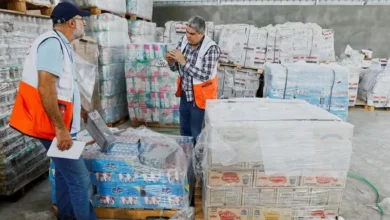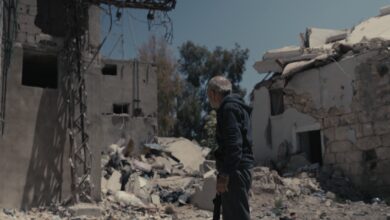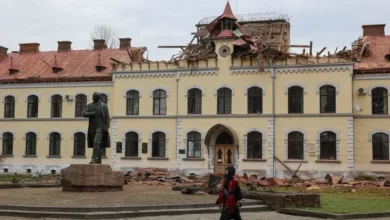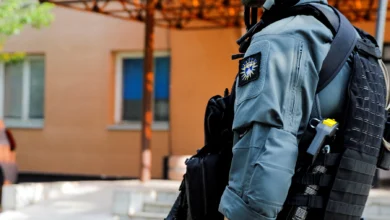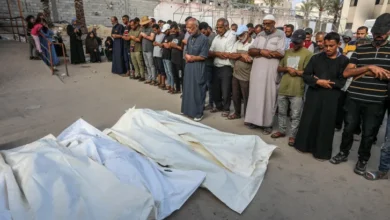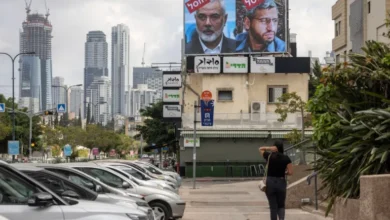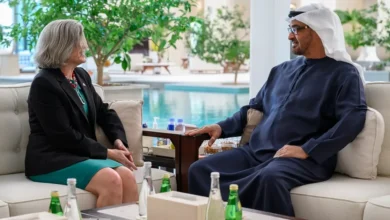Desperate journeys: Syrian refugees fleeing Israel’s assault on Lebanon
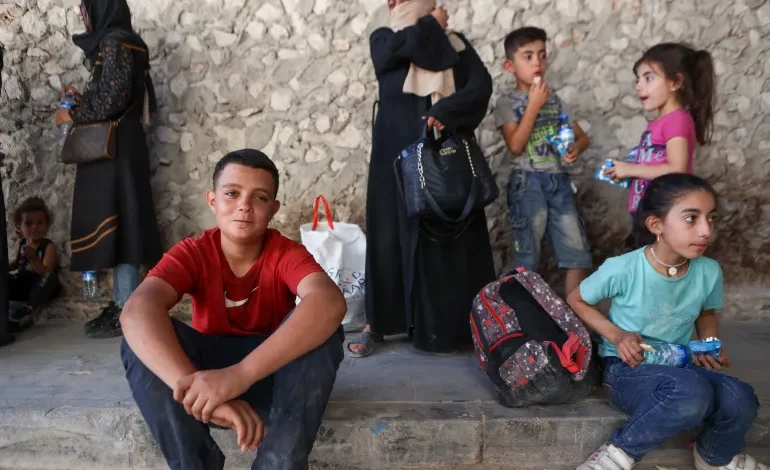
Musa Baghdadi paid $6,000 for the privilege of exchanging one bombardment for another. “I paid to escape the shelling in Lebanon to reach my village, which is also under bombardment by Assad’s army,” he tells Al Jazeera at his modest, one-storey home in al-Bara, western Idlib.
The little house has not fared well in the 12 years since the Baghdadi family fled the Syrian regime to take refuge in Lebanon. It currently has no windows – all will need to be replaced – and has suffered significant damage from shelling by al-Assad regime forces. It’s not as bad as many of Baghdadi’s neighbours have suffered, though – many houses nearby were destroyed.
Baghdadi, 64, is just one of more than a quarter of a million Syrians believed to have returned to Syria since the full-blown Israeli assault on Lebanon began last month. The precise number has been placed at 253,284 by local media reports.
According to the Syrian Observatory for Human Rights (SOHR), based in London, the number of Syrian refugees killed in Lebanon as a result of the ongoing and intense Israeli escalation on Lebanese territory since September 21 has now reached 176, including 33 women and 46 children.
So, after 12 years in Lebanon, Baghdadi returned with his wife and four grandchildren, aged 11 to 14, to their home village of al-Bara, located near the front lines of Syrian regime forces. The children’s father – Baghdadi’s son – was killed in 2012 when their home came under bombardment, and their mother has since remarried and remained in Syria.
Baghdadi had already taken his family away from their adopted home in al-Duwayr, a village in Nabatieh in southern Lebanon when the Israeli bombardment of southern Lebanon began in full force on September 21. The town had already come under fire by the Israeli army on August 23 during the near-daily exchanges of fire between Israel and Hezbollah across the border since Israel’s war on Gaza began in October last year.
The family headed first to the village of Ghazieh, south of Sidon, about 30km (18.5 miles) away. That first night, they were forced to sleep on the pavement of a street in Sidon because the traffic was so congested by people fleeing al-Duwayr that they could not move on.
“The next day, we went to a mountain near Sidon and rented a house for $350 for one week. It had no water or electricity, but it was still better than staying on the street,” Baghdadi says.
His account tallies with those of other displaced people in Lebanon – Lebanese and Syrians alike – who claim that landlords are hiking rents to take advantage of their predicament.
An ‘amnesty’ that is anything but
As the Israeli assault on Lebanon mounted in September, Baghdadi decided it would actually be safer to return to Syria. Even though the journey to the family’s old village in rural Idlib, crossing through areas controlled by the Syrian regime, would be fraught with the danger of arrest or kidnapping by members of the Syrian armed forces, it seemed preferable to remaining in Lebanon.
On September 22, coinciding with the launch of the Israeli assault on Lebanon, Syria’s President Bashar al-Assad issued his government’s 24th promise of amnesty to political prisoners and men of conscription age who have avoided forced military service. But observers say this promise, made to encourage Syrians to return home, is not what it seems.
Writing for Al Jazeera, Hadi al-Bahra, president of the Syrian National Coalition, said: “Al-Assad utilises these decrees as a means to deceive the international community that he is making an effort towards stability and reconciliation.
“But a close examination of these decrees reveals that they leave considerable room for security agencies to manipulate the fates of individuals who are purportedly covered by the amnesty.”
While the decrees specify amnesty for certain offences, charges levelled by the regime against political opponents, such as “terrorism” and “high treason”, remain excluded, al-Bahra said. “This effectively means that the majority of political detainees and activists remain outside the scope of these decrees, rendering them ineffective in providing a safe environment for the return of refugees.”
For Baghdadi, the risk to ordinary citizens like him and his family seemed too great not to take additional steps to avoid encounters with the regime’s forces once they reached Syria.
“Keeping my son’s children safe – my son was killed in 2012 by Assad’s forces – was all I could think about,” he says. “I contacted a smuggler who promised me that we would reach Idlib without passing any regime checkpoints for $6,000.”
